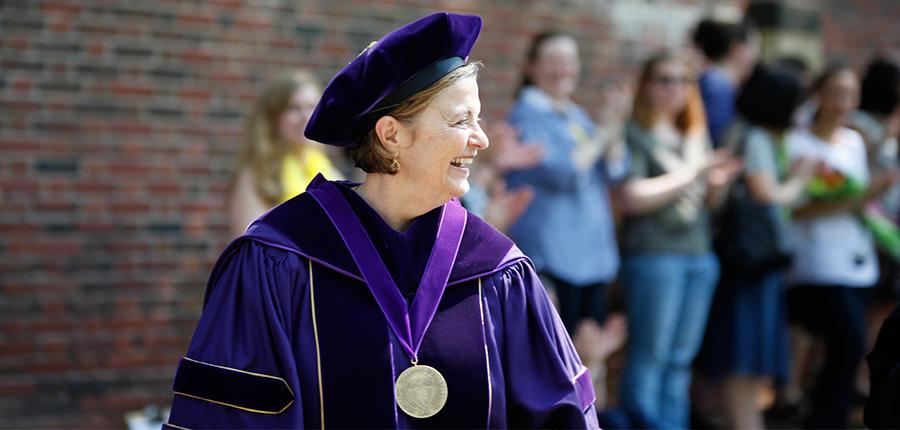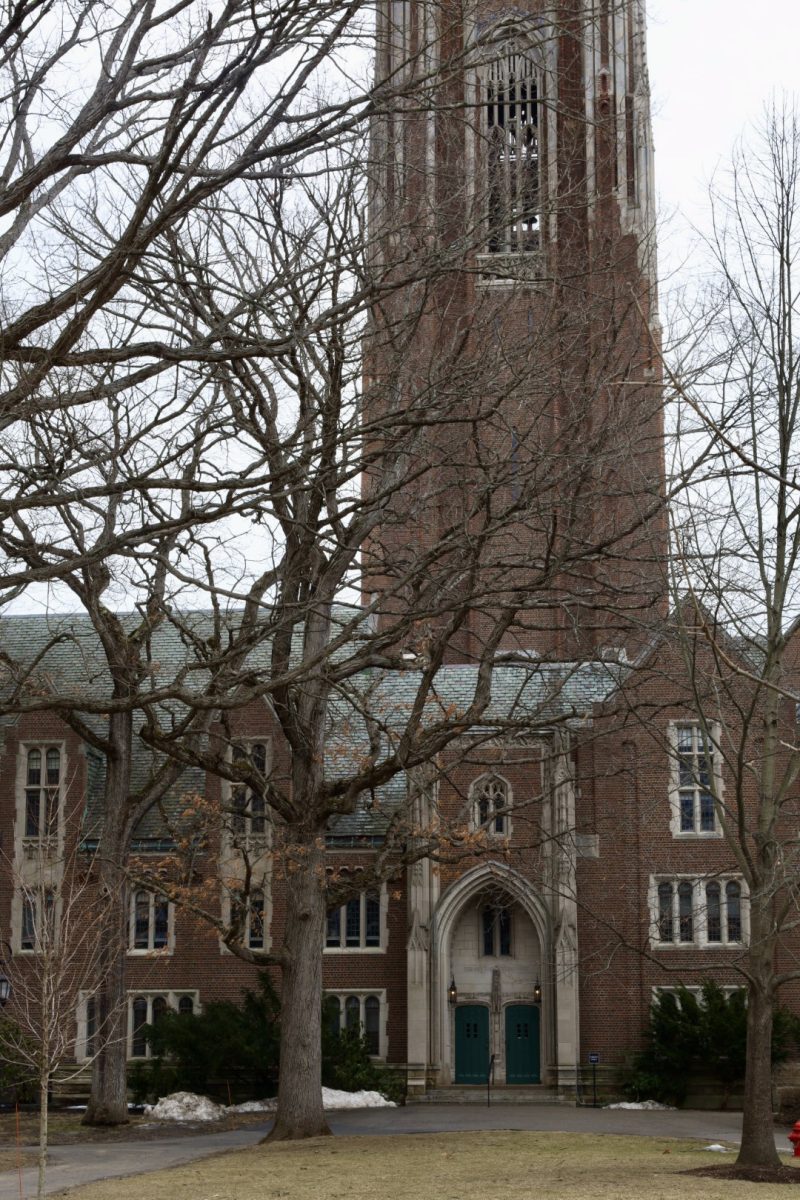A week and a half ago, President Kim Bottomly announced via a college announcement email that she would be stepping down from her position as Wellesley College President in July 2016. In the April 17 announcement, Bottomly elaborated on the policy changes she helped oversee since becoming president in 2007 just before the recent economic downturn.
The recession posed great challenges to the short and long term financial viability of Wellesley College for the new president, but Bottomly was able to help steer and build the school’s foundations in the midst of trying times. She partly attributes this success to her identity as a scientist, an “inherent problem-solver” who relishes the challenges she faces.
“In an era of economic constraint, we have inaugurated ambitious plans and initiatives that have fortified Wellesley’s foundational strengths as a great liberal arts college and the world’s leading women’s college and that will position the College for leadership in the years ahead,” Bottomly said.
Some structural economic changes Wellesley made during the recession included garnering more alumnae donations, improving the endowment to $1.8 billion and restructuring the budget. President Bottomly worked with administration to help implement the $550 million Campus Renewal plan, an initiative that seeks to optimize the Wellesley experience by making large-scale infrastructure improvements.
Bottomly also worked with the Wellesley community to improve students’ academic experience. In 2013, Wellesley College began offering massive open online courses, or MOOCs, in the subjects of history, anthropology and sociology. Bottomly also helped found Wellesley’s qualitative analysis institute and initiated the school’s partnership with Olin and Babson. In addition, she oversaw the founding of the Madeleine Korbel Albright ’59 Institute for Global Affairs in 2009, which provides 40 fellowships for rising Wellesley juniors and seniors to pursue internships abroad and attend the Wintersession conference at Wellesley College.
Before becoming president of Wellesley College, Bottomly was a faculty member with an active laboratory and deputy provost for science, technology and faculty development at Yale University. While she enjoyed being at Yale, Bottomly retained an interest in women’s education and leadership.
When applying for the position of Wellesley College President, Bottomly was influenced by the diverse and inspirational alumnae she encountered.
“Wellesley was clearly doing something right, and I was ready to be a part of it,” Bottomly explained.
President Bottomly had many enjoyable experiences at Wellesley ranging from being with the Class of 2015 when they went Hooprolling to her annually hosting trick-or-treating Wellesley students at her home to her walking to work alongside Lake Waban.
When asked about the most formidable challenges Wellesley College will face over the short and long term, Bottomly pointed to the school’s need to remain affordable. She is proud of the college’s need-blind admissions policy and generous financial aid policies. The second major challenge is confronting the increasingly popular view that the best education is a vocational one. She believes that the inspirational examples of Wellesley’s students and alumnae will continue to establish a liberal arts education as a legitimate option in the 21st century.
When asked why she was stepping down, Bottomly cited timing reasons.
“There isn’t anything pushing me away, and there isn’t anything pulling me elsewhere. My eight years so far at Wellesley have been an amazing journey, and I am very much looking forward to one more year here focused on several key initiatives,” Bottomly elaborated.
Before Bottomly leaves, she will focus on three issues: Campus Renewal, the Commission on Race, Ethnicity and Equity and Wellesley’s career service program.
When asked about how she thinks her successor will fare, Bottomly had a powerful response.
“Wellesley has had 13 quite individual and distinct presidents, each of whom has added to the reputation and luster of our College. I have no doubt that number 14 — my successor — will do the same in her own way,” Bottomly wrote.
Provost Andrew Shennan commended Bottomly for her strong leadership.
“She has guided us during a complicated time in the world with her trademark qualities of clarity, poise and common sense. She has always understood Wellesley’s sense of itself as a unique institution, and insisted that short-run challenges not deter us from exercising leadership in the world of higher education and in the world at large,” Shennan noted.
Nicole Anderson ’18 enjoyed meeting Bottomly at a Stone-Davis dinner and learning what she does on a daily basis and was inspired by what Bottomly did before entering Wellesley.
“Her work in the sciences at Yale is something that I think a lot of students could have connected to, and it is sad that many student didn’t take the time to have conversations with her about a shared interest,” Anderson noted.
Anderson also expressed being impressed by Bottomly’s ability to listen to the Wellesley community and is grateful for being able to have meet her.
“The number of people she has to deal with is crazy, but she does such a good job of balancing the requests of alums and students….I’m really glad that she was the college president for my transition to college,” Anderson wrote.
Brittany Louise Lamon ’15 met Bottomly in the Student Life Board of Trustees meeting and remembers her fondly for her enthusiasm and helpfulness.
Although she is sad to hear about Bottomly stepping down, she expressed high hopes about President Bottomly’s successor.
“I know the search committee will find a president that dedicated their time and passion to the college like President Bottomly did,” Lamon wrote.
Amber Qin ’18 admired the way Bottomly tries to involvement the Wellesley when making policy changes.
“I think she tackled some thorny problems pretty well through ways that are as democratic as possible,” Qin remarked.
In an April 24 college announcement email, the Wellesley College Board of Trustees wrote that they would begin forming a presidential search committee over the next few weeks. The committee will be created in a similar way to that of past presidential search committees and will include students, faculty, administrative staff and trustees.
Photo courtesy of Wellesley College
Danni Ondraskova ’18 is the News Editor who plans to major in Russian Area Studies and International Relations with a concentration in politics or economics. She loves rereading Anna Karenina and listening to Romanian House music. She can be reached at dondrask@wellesley.edu.






